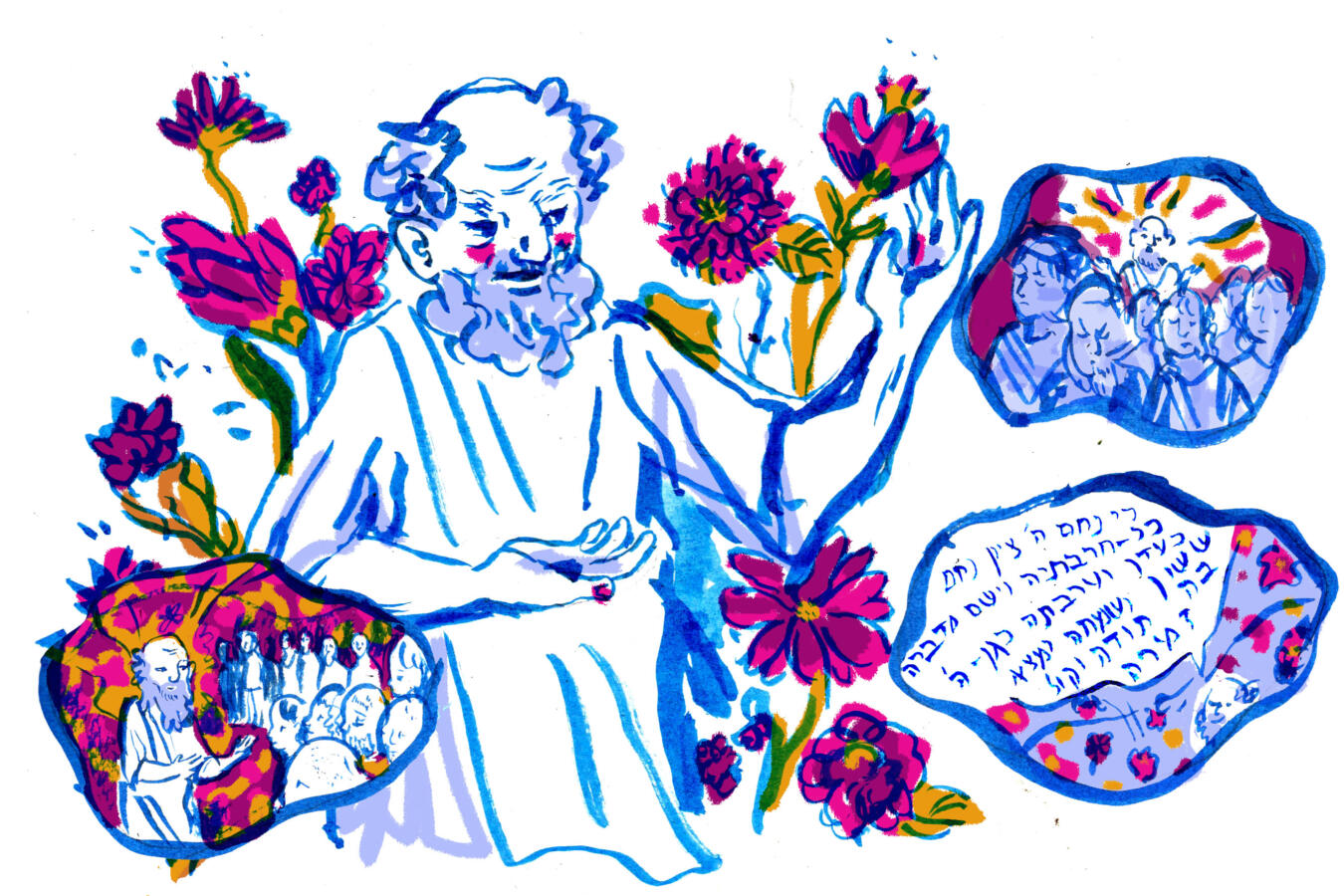“Comfort, oh comfort my people
Says your God,
Speak tenderly to Jerusalem,
And declare to her
With your help, My Jewish Learning can provide endless opportunities for learning, connection and discovery.
That her term of service is over,
That her iniquity is expiated,
For she has received at the hand of the Lord
Double for all her sins.” (Isaiah 40:1–2)
Telling the scattered remnants of a defeated and despairing nation, exiled to the victors’ capital, that their exile is about to end, that the way will suddenly open up for them to return home, that the God who punished them with that downfall is now eager to forgive them and raise them back to their former glory — that is the hopeful but challenging task of the prophet who speaks in the second part of the book of Isaiah.
After the destruction of Jerusalem and exile of the Jewish people to Babylon, the prophet offers a message of hope and encouragement. He ultimately accompanies those who begin the return to Zion, now offering them a vision of a universal House of God. There, Deutero-Isaiah envisions, all humankind will praise and thank the one true God. Compared to other biblical books it presents an emphatic monotheism: it’s not that Israel’s God is the mightiest, but that no other gods actually exist. But it’s also sociologically inclusive in that other nations will share in that Temple.
How Many Isaiahs?
Though it’s a single book with a single name, the author of Isaiah 40–66 is not the same as the author of the first 39 chapters (and, indeed, many scholars discern a third hand in chapter 56–66). Careful and open-minded readers of the book of Isaiah as far back as the medieval interpreter Abraham ibn Ezra nine centuries ago have noted that chapters 40 and beyond seem to date from two hundred years later than the time of the 8th-century BCE kings whose reigns are listed in chapter 1 as the time of the book’s namesake prophet, Isaiah son of Amoz. References to the 6th century’s King Cyrus of Persia, promises of imminent restoration, and the universalist spirit of chapters 40–66 all point to a time after the destruction of the Temple in 586 BCE for the composition of those chapters. That block of text has been dubbed by scholars “Deutero-Isaiah,” literally meaning “the second Isaiah.” Some have suggested that even those later chapters are the work of several writers, but recent scholarship has highlighted a unity of style and reference across the prophecies in those 27 chapters.
Liturgical Use
Deutero-Isaiah provides all seven of the Haftarot of Consolation recited on consecutive Shabbat mornings in the weeks following the Tisha B’Av. The first of them, the Haftarah of Shabbat Nahamu (the Shabbat immediately following Tisha B’Av), begins with the verses quoted above. One can hear in them a rejoinder to the lament voiced more than once in Eicha (Lamentations), read on Tisha B’Av, that Jerusalem has no consoler (menahem), no one to offer words of comfort in her time of defeat and mourning (Lamentations 1:2, 9). The prophets words seem to offer a direct rebuttal to Lamentations:
“Truly the Lord has comforted Zion,
Comforted all her ruins;
He has made her wilderness like Eden,
Her desert like the Garden of the Lord” (Isaiah 51:3)
“Raise a shout together,
O ruins of Jerusalem!
For the Lord will comfort His people,
Will redeem Zion” (Isaiah 52:9)
Did Isaiah’s message of comfort work? It appears that the message of consolation fell on disbelieving ears. This is, after all, the people who are quoted by Ezekiel (37:11) as saying, after the fall of Jerusalem and their exile to Babylon, “Our bones are dried up, our hope is gone; we are doomed.” Another of their poets had depicted their utter loss, upon arrival in Babylon, of belief in any collective future: “By the rivers of Babylon, there we sat, sat and wept, as we remembered Zion.” (Psalm 137). Deutero-Isaiah is aware of this hopelessness, and seeks to counter it:
“Do you not know?
Have you not heard?
The Lord is God from of old,
Creator of the earth from end to end,
He never grows faint or weary,
His wisdom cannot be fathomed.
He gives strength to the weary,
Fresh vigor to the spent.
Youths may grow faint and weary,
And young men stumble and fall,
But they that trust in the Lord shall renew their strength
As eagles grow new plumes.
They shall run and not grow weary,
They shall march and not grow faint.” (Isaiah 40:27–31)
Many verses from Deutero-Isaiah have found their way into Jewish liturgy, expressing as they do a religious worldview closer than many other biblical voices to the theology of rabbinic Judaism. God’s exclusive and universal rule is a regular theme, one that is echoed more than once in the language of the Aleinu prayer. The Yotzer Or blessing that is the first piece of liturgy (after the call to prayer) in the Shacḥarit (morning) service each day of the year, draws almost verbatim from Isaiah’s language (with one significant theological adjustment).
Deutero-Isaiah originally comforted those who were exiled in Babylon, but the message of consolation has helped sustain the downtrodden and dispersed Jewish people throughout its history, into modern times.
“Whereas you [Jerusalem] have been forsaken,
Rejected, with none passing through,
I will make you a pride everlasting,
A joy for age after age.” (Isaiah 60:15)



